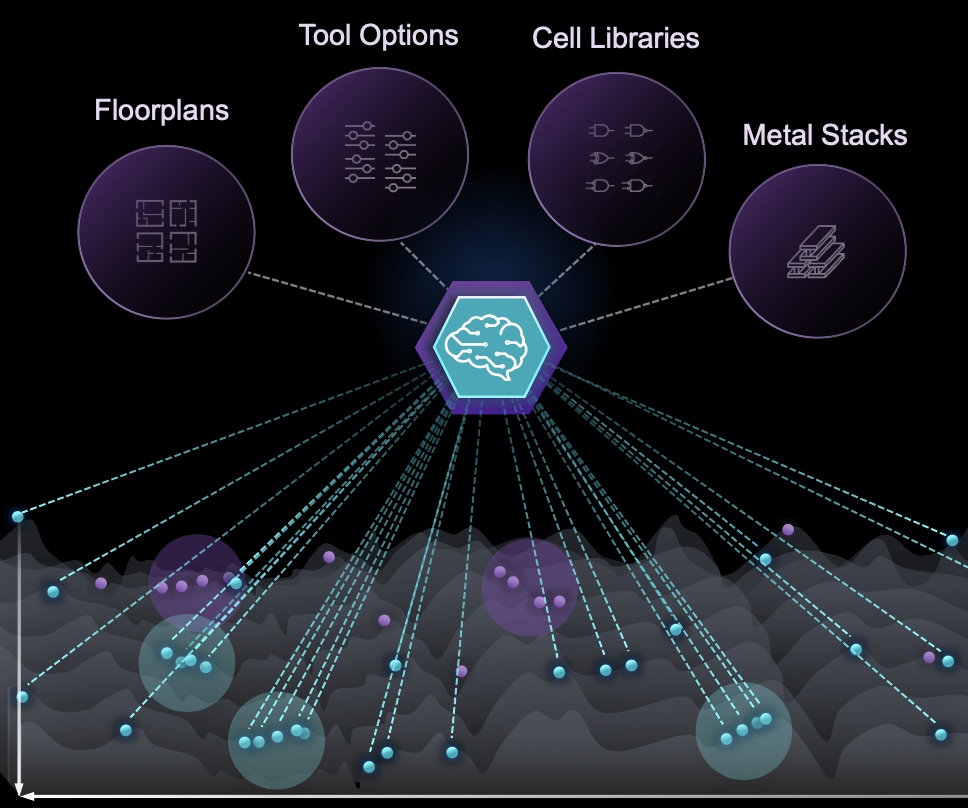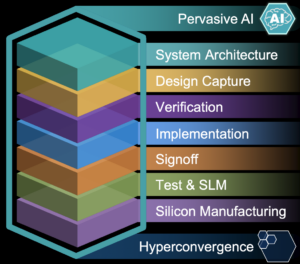
SNUG is the premier event for Synopsys to showcase its technology and impact on the industry. This year’s SNUG did not disappoint. The two-day event packed many fantastic user presentations along with exciting news of innovation from Synopsys. Jensen Huang and Sassine Ghazi even held a live, interactive Q&A session. Compelling content. The tagline for the event was: Our Technology, Your Innovation, setting a tone of collaboration for the future. You can learn more about the big picture for the event here. As you would expect, AI was a prominent and pervasive topic. There was a special session on Day 1 of SNUG for media and analyst attendees that dug into the impact of AI on chip design. I will explore how Synopsys presents AI-fueled innovation at SNUG 2024.
Framing the Discussion

Sanjay Bali gave an insightful presentation about the opportunities AI presents for new approaches to
design. Sanjay is Vice President, Strategy and Product Management for the EDA Group at Synopsys. He’s been with the company for almost 16 years, so he’s seen a lot of change in the industry. Having spent time at Intel, Actel, Mentor and Magma before joining Synopsys, Sanjay brings a broad view of chip design to the table.
He presented an excellent overview of the opportunities for AI in the EDA workflow. He explained that in the implementation and verification flows, there are many options to consider. Choosing the right technology and architectural options during RTL design, synthesis, design planning, place & route and ECO closure have a profound impact in the quality of the final result, as well as the time to get there. Using AI-driven optimization allows all the inter-related decisions to be considered, balanced and optimized with a level of detail and discovery that is difficult for humans to achieve.
He reported that across image sensor, mobile, automotive, and high-performance computing applications Synopsys AI technology has delivered noteworthy improvements compared to non AI-assisted processes. From 5nm to 28nm technologies, results such as 12% better area, 25% lower power, 3X increased productivity and 15% test coverage improvement have been achieved. This is a small subset of the complete list of accomplishments.
And the story doesn’t stop there. Analog design can also benefit from AI, with a 10X overall improvement in turnaround time for analog optimization and a 3X faster turnaround time for analog IP node migration. The complexity and cost of testing advanced designs can also benefit from Synopsys AI technology, with pattern count reductions ranging from 18% to a whopping 70%, depending on the application.
Sanjay also touched on the emerging field of multi-die package design. Here, autonomous full-system exploration can optimize signal integrity, thermal properties and the power network, delivering improved performance and memory efficiency. A 10X boost in productivity with a better quality of result has been achieved.
Big data analytics are also creating new opportunities and revealing new insights. Process and product analytics can reduce defects and increase yields. The opportunities are eye-opening. Sanjay also talked about the application of generative AI to the design process. Junior engineers are able to ramp-up as much as 30% faster without depending on an expert. Generally speaking, AI can increase search and analysis speed and deliver superior results, allowing designers to be more productive.
This was an impressive presentation that covered far more topics than I expected. Sanjay presented a graphic that depicts the breadth of the Synopsys AI solution as shown below.

The Demonstration

Stelios Diamantidis, Distinguished Architect, and Executive Director, Center for Generative AI provided a demonstration of some the tools in the Synopsys.ai arsenal. Stelios has been with Synopsys for almost fifteen years years and has played a key role in the infusion of AI into the Synopsys product suite.
It’s difficult to capture the full impact of a live demonstration without the use of video. Let me just say that the capabilities Sanjay described are indeed real. Across many scenarios, Stelios showcased advanced AI capabilities in a variety of Synopsys products.
A common theme for a lot of this work is the ability of AI to examine a vast solution space and find the optimal choices for a new design. The technology can deliver results faster and with higher quality than a team of experienced designers. The graphic at the top of this post presents a view of how this process works.
To Learn More
A lot was covered in this session. The breadth and depth of AI in the Synopsys product line is very impressive. You can get more information on this innovative set of capabilities here. And that’s how Synopsys presents AI-fueled innovation at SNUG 2024.
Share this post via:





Comments
There are no comments yet.
You must register or log in to view/post comments.